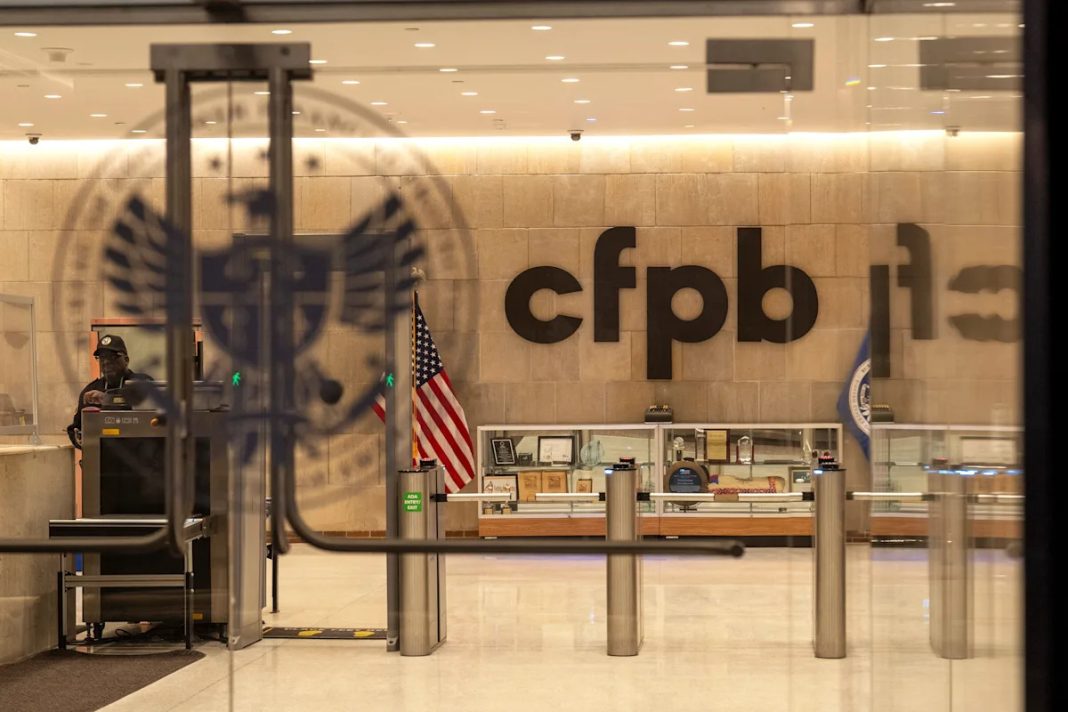A federal appeals court panel has cleared the way for the Trump administration to largely dismantle the work of the Consumer Financial Protection Bureau, lifting a lower-court judge’s injunction that had preserved the agency’s structure — and barred mass layoffs — for months.
The2-1 ruling, authored by Judge Gregory Katsas, said a series of legal defects in the lawsuit brought by CFPB employees and the NAACP doomed the case and required the district court judge’s blockade to be lifted.
Katsas, a Trump appointee, said the fatal flaw was the broad challenge against what the employees described as a master plan to shutter the agency altogether. While individual layoffs or contract terminations may be challenged in court, Katsas wrote that the sweeping directive to close the agency — alleged in the lawsuit — was not something the courts could review, particularly because it was unclear that the administration had made a final decision to carry out the closure.
“The plaintiffs seek to set aside an abstract decision, inferred from a constellation of discrete actions, to prophylactically ensure that the Bureau can fulfill its statutory mandate,” Katsas wrote. “If the plaintiffs’ theory were viable, it would become the task of the judiciary, rather than the Executive Branch, to determine what resources an agency needs to perform its broad statutory functions.”
Katsas was joined in the decision by Judge Neomi Rao, another Trump appointee. Judge Cornelia Pillard, an Obama appointee, dissented. The decision may be appealed to the full bench of the D.C. Circuit Court of Appeals or to the Supreme Court.
The ruling is a hard-won victory for the Trump administration after losing repeated rounds in court since March. U.S. District Judge Amy Berman Jackson, an Obama appointee, found that the administration had been attempting to unlawfully shutter the CFPB and blocked the large-scale dismantling, finding that the agency had been unable to perform legally required tasks.
Jackson’s decision followed a two-day hearing in her courtroom that aired deep turmoil and tension within the agency as Elon Musk’s DOGE employees attempted to commandeer the agency’s systems. Emails and other records produced during the court battle shed more light on the chaos unleashed among senior officials, particularly after acting CFPB head Russ Vought called for a stoppage of “work tasks” in February.
Pillard’s dissent accused Katsas and Rao of taking too narrow a view of the court’s ability to prevent the Trump administration from violating the law.
“The President’s chosen CFPB leadership may — within those constraints — run the Bureau as it determines best serves the public interest. But it is emphatically not within the discretion of the President or his appointees to decide that the country would benefit most if there were no Bureau at all,” Pillard wrote. “The notion that courts are powerless to prevent the President from abolishing the agencies of the federal government that he was elected to lead cannot be reconciled with either the constitutional separation of powers or our nation’s commitment to a government of laws.”
As the legal fight over the CFPB has played out in court, Trump and Republicans have successfully slashed the bureau’s funding. The GOP tax and spending megalaw Trump signed in July cuts by roughly half the amount of funding the CFPB can request to finance its operations from the Federal Reserve.
And even with the legal roadblocks, Trump administration officials have already moved to curtail much of the agency’s work. In recent months the CFPB has dropped lawsuits against companies, reversed settlements and is seeking to drastically reduce its oversight of a range of industries.
At the same time, the White House is enlisting the CFPB in its fight against “debanking,” a crackdown on allegations that banks closed the accounts of conservatives or conservative-aligned industries for political purposes. The CFPB is among the regulators Trump tasked earlier this month with examining whether banks were engaged in that practice.
The CFPB has also announced that it plans to rewrite a sweeping Biden-era regulation governing financial data-sharing. Crypto executives and financial technology firms have been lobbying Trump to enforce a Biden-era policy that prohibits banks from charging fees for that data-sharing — which fintechs and crypto firms use to power their services and make it easier for customers to set up accounts and move money.

